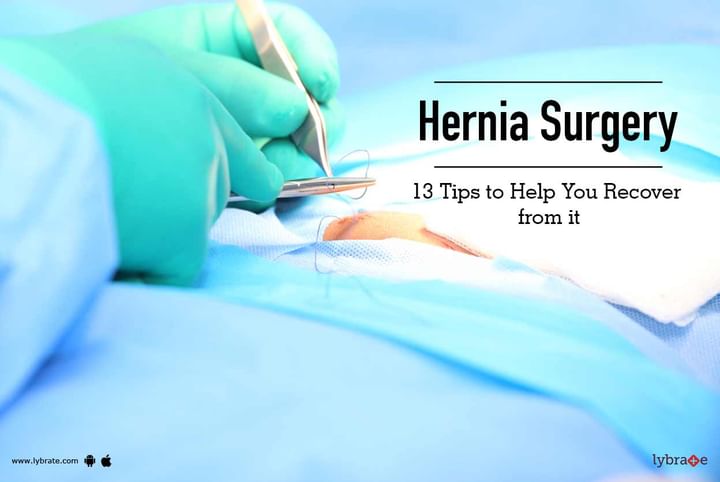Hernia Surgery - 13 Tips to Help You Recover from it
Hernia surgery is performed for the correction of a hernia which refers to the bulging of internal organs or tissues through an abnormal opening. It is easy to detect hernia through any pain or discomfort while lifting heavy objects, cough and strain during urination or bowel movements or during prolonged standing or sitting. It can be found in both men and women. The Hernia can be congenital or can be developed over a period of time. If it doesn’t get better over time and also does not go away by itself, then surgery becomes the only option.
Types of Surgery
There are two types of surgery for hernia treatment. One is the conventional open method, which requires an incision in the skin directly over the hernia. The other one is the Laparoscopic hernia repair in which surgery is performed using a small telescope known as a laparoscope. In this type of surgery minimal invasions are made and the hernia is repaired with only small incisions adjacent to the hernia. Most hernia operations are performed on an outpatient basis, which means that you can go home the very same day.
Tips for early recovery
- Wear comfortable clothing with expandable waistbands.
- Keep yourself active by moving around as much as you can as it increases circulation, which further speeds up healing.
- Eat a diet rich in fibre, fresh fruits and vegetables.
- Drink lots of water and other fluids to avoid constipation.
- Do not lift any objects even if it is very light as it can bring back pain.
- Do not to pick up things from the floor as it will be difficult to bend.
- Hold a pillow against your stomach while sneezing or coughing to lessen the pain.
- Use stool softener for a few days before and after surgery to help you with your bowel movements.
- Avoid driving till the time you feel any pain and as long as you are taking narcotic pain medicines.
- Band-Aids which cover the incisions should be changed as and when needed.
- Refrain yourself from intercourse as it can be painful.
- Check with your doctor when to take a shower so as not to hurt your incisions, and make sure to gently dry your incisions and replace the Band-Aids after taking a shower.
- Do not consume any alcoholic drinks for at least 24 hours.
The tips mentioned above will definitely provide help to cope up with post surgery blues. However, in case of fever, excessive sweating, difficulty in urinating, bleeding or any prolonged pain consult your doctor immediately.



+1.svg)
